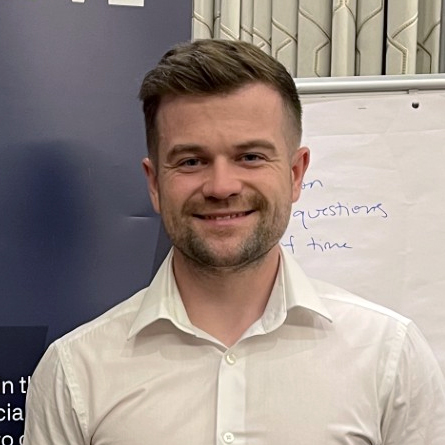We have updated our Privacy Policy, click here for more information.
Thank you

Published: June 5, 2025
At the start of December 2024, the sensational news of Operation Destabilise was released to the public which detailed the efforts of the UK’s National Crime Agency (NCA) and other international police agencies to expose and disrupt a Russian money laundering network with links to several worldwide organised crime groups operating in the UK, Ireland, Middle East, Russia, and South America.
Their investigation led to 84 arrests and the seizure of over £20m in cash and cryptocurrency.
Operation Destabilise highlights the importance of robust AML (Anti Money Laundering) protocols for preventing Money Laundering & Terrorist Financing. At First Derivative we work with our clients to design and implement strong AML (Anti-Money Laundering) Policies and Procedures to prevent and detect any illicit activity. Through the deployment of highly skilled Financial Crime consultants with a wealth of knowledge in regulatory requirements and leading industry practices we ensure our clients have not only the correct frameworks in place but also support in ensuring their frameworks are correctly implemented with robust controls in place.
As a reminder, for all Financial Institutions under the UK’s Proceeds of Crime Act (POCA) 2002, failure to disclose any knowledge or suspicion of money laundering, or indeed failure to report where there are reasonable grounds to suspect/know another person is engaged in money laundering, could lead to up to five years in prison and/or an unlimited fine. Not to mention the reputational damage and the wider impact of money laundering has on society as a whole.
Another key finding of Operation Destabilise was the complex systems criminals employ to facilitate international money laundering. This is where a strong Transaction Monitoring program is required to detect any potential red flags/illicit activity.
The networks collected funds in one country and made the equivalent value available in another, often by swapping cryptocurrency for cash. This streamlined the movement of cash generated by crime groups in the West, while simultaneously laundering crypto for cyber criminals, and helping Russian oligarchs bypass sanctions. With the UK being a key hub for the networks; investigators witnessed exchanges taking place at scale across the country where street-level cash handovers were followed almost immediately by a movement of cryptocurrency of the same value. After being paid in crypto in exchange for their cash, criminal gangs would use the virtual currency to reinvest in their illicit business, buying more drugs or firearms without the need to move any physical money across borders.
First Derivative recently supported a client who had identified a gap in their transaction monitoring controls with queries outstanding on over 3,000 of its small business accounts.
Our team mobilised efficiently to;
The rapid mobilisation, high quality review and identification of any outcomes allowed the client to return to BAU operating as quickly as possible with no further concerns identified.
Concerned about Money Laundering risks? Discover how First Derivative can strengthen your AML defenses.

Joe Campbell
Principal Consultant | Financial Crime
First Derivative
First Derivative LinkedIn profile

Michael Duffin
Senior Consultant | Financial Crime
First Derivative
First Derivative LinkedIn profile